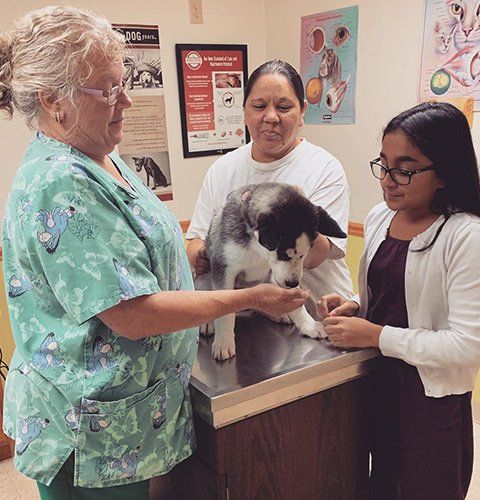BLADDER
STONES TREATMENT
Stones in the urinary tract are common in dogs and cats. Even though dogs and cats do get kidney stones, it is bladder stones that cause more problems. If you are unsure if your pet needs bladder stone treatment, a urinalysis is a fast and efficient way to find out. Typical symptoms include: straining to urinate, blood in the urine, or urinating small amounts frequently. There might also be excess urination (polyuria), a pain in the rear quarters, reluctance to jump or play, or even lethargy and a poor appetite. Some pets can have bladder stones without any apparent symptoms at all! Find out more about bladder stones treatment by calling Aaron Animal Clinic at 216-901-9980.
FACTS ABOUT BLADDER STONE TREATMENT
- Predisposing causes of bladder stones include pets that are not drinking enough or are not allowed to urinate frequently.
- Bacteria and stone forming chemicals stagnate in the urinary bladder and increase the chance of a stone forming.
- The bladder stones can pass out of the bladder and lodge in the urethra, especially in male dogs, due to the smaller diameter of their urethra. In some cases, they can block the flow of urine, which is a medical emergency. This will cause problems with the kidneys, leading to the buildup of toxic waste products
- Mechanical flushing of the bladder, in the form of regular and frequent urination, will prevent this.
- Always make sure your pet has access to freshwater, changed several times per day, and the ability to urinate frequently. If you feed dry food, you should be giving more than one cup of water per cup of dry food.
- An easy way to get around this vital requirement for water is not to feed dry food at all.
- Your pet's urine should be clear, with no odor or color, and should often be. Sometimes these common-sense suggestions are so apparent that we tend to forget about their importance.



